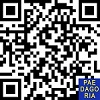NON-LINEAR PROFESSIONS IN EDUCATIONAL INSTITUTIONS: AN ANALYSIS OF LEADERSHIP STYLE PERSPECTIVES AND PRINCIPALS' RESPONSES IN LOMBOK
Abstract
Keywords
Full Text:
PDFReferences
A Hargreaves, M. F. (2015). Professional capital: Transforming teaching in every school. Teachers College Press. https://books.google.co.id/books?
Bahri, S. (2022). Pemulihan Pembelajaran di Sekolah Melalui Kurikulum Prototipe. Scholaria: Jurnal Pendidikan Dan Kebudayaan. 12(3), 204-215. https://doi.org/10.24246/j.js.2022.v12.i3.p204-215
Belhaj, F. A. (2024). Transformational Leadership as a Driver of Organizational Culture in theYemeni Public Sector. Journal of System and Management Sciences, 14(2), 273–290. https://doi.org/10.33168/JSMS.2024.0217
Boone, J. (2015). Leading learning organizations through transformational change: Making the case for blended learning. International Journal of Educational Management. 29(3), 275-283. https://doi.org/10.1108/IJEM-06-2013-0096
Budiman. (2023). Transformative Leadership Management In Islamic Educational Institutions. International Journal of Management and Business Economics. 1(3), 181–187. https://doi.org/10.58540/ijmebe.v1i3.194
Clegg, S., & Cunha, M. P. (2019). Post-leadership leadership mastering the new liquidity. Routledge. https://www.taylorfrancis.com/chapters/edit/10.4324/9781315110196-12/post-leadership-leadership-stewart-clegg-miguel-pina-cunha
Curral, L., Marques-Quinteiro, P., Gomes, C., & Lind, P. G. (2016). Leadership as an emergent feature in social organizations: Insights from a laboratory simulation experiment. PLoS ONE. 11(12), e0166697. https://doi.org/10.1371/journal.pone.0166697
Donkor, F., & Zhou, D. (2019). Complexity Leadership Theory: A Perspective for State-Owned Enterprises in Ghana. International Journal of Educational Leadership and Management. 7(2), 139-170. https://doi.org/10.17583/ijelm.2019.3647
Funk, R., Uhing, K., Williams, M., & Smith, W. M. (2022). The role of leadership in educational innovation: a comparison of two mathematics departments’ initiation, implementation, and sustainment of active learning. SN Social Sciences. 2(12), 258. https://doi.org/10.1007/s43545-022-00565-8
Ghadi, M. Y. (2024). Visionary leadership and job crafting: a moderated mediation model. RAUSP Management Journal.volume? issue? halaman? https://doi.org/10.1108/RAUSP-01-2024-0020
Guo, S., Hou, Y., Jiang, H., Zhan, X., & Ma, J. (2021). Dynamic system analysis of leadership effectiveness in complex environments. Discrete Dynamics in Nature and Society. 2021(1), 8863059. https://doi.org/10.1155/2021/8863059
Hartati, S., Ali, I., & Murtafiah, Hidayati, N. (2023). Gaya Kepemimpinan Dalam Pengelolaan Pembiayaan Pada Lembaga Pendidikan Islam Swasta (Gaya Kepemimpinan Visioner). Jurnal Pendidikan Dan Konseling. 5(2), 4081-4090.
Leithwood, K., Sun, J., & Pollock, K. (2020). How school leaders contribute to student success: The four paths framework. Springer Nature. 3(2), 687-701.
Means, B., Toyama, Y., Murphy, R., & Baki, M. (2013). The effectiveness of online and blended learning: A meta-analysis of the empirical literature. Teachers College Record. https://doi.org/10.1177/016146811311500307
Mesiono, M., Wasiyem, W., Zakiyah, N., Fahrezi, M., Nursakinah, I., & Taufiq Azhari, M. (2024). Dinamika Kepemimpinan Perguruan Tinggi: Tantangan dan Strategi Manajemen untuk Menanggapi Perubahan Cepat di Era Globalisasi. JIIP - Jurnal Ilmiah Ilmu Pendidikan. 7(3), 3146-3153. https://doi.org/10.54371/jiip.v7i3.3789
Montgomery, B. (2020). Academic Leadership: Gatekeeping or Groundskeeping? Journal of Values-Based Leadership. 13(2), 16. https://doi.org/10.22543/0733.132.1316
Msila, V. (2022). Higher Education Leadership in a Time of Digital Technologies: A South African Case Study. International Journal of Information and Education Technology. 12(10), 1110-1117. https://doi.org/10.18178/ijiet.2022.12.10.1728
Mutohar, P. M. M. (2023). Visionary Leadership: Strategi Membangun Brand Image dan Daya Saing Perguruan Tinggi. In Deazha Prima Nusantara. volume? issue? halaman? DOI/URL?
Napier, J. B., Luft, J. A., & Sings, H. (2020). In the Classrooms of Newly Hired Secondary Science Teachers: The Consequences of Teaching In-field or Out-of-field. Journal of Science Teacher Education, 31(7), 802–820. https://doi.org/https://doi.org/10.1080/1046560X.2020.1800195
Northouse, P. (2016). Leadership : Theory and Practice (7th ed.). Western Michigan University. https://books.google.co.id/books?hl=id&lr=&id=V6AwEQAAQBAJ&oi=fnd&pg=PT16&dq=Northouse,+P.+(2016).+Leadership%E2%80%AF:+Theory+and+Practice+(7th+ed.).+Western+Michigan+University.&ots=qNYCwphPkN&sig=ovow5Wi0KbYnU1jf274JQkRrvD0&redir_esc=y#v=onepage&q&f=false
Pękala, J. L., & Kowalska, W. (2020). Leadership in Educational Institutions: Shared Duty and Joint Responsibility. Forum Pedagogiczne. (Vol. 9, No. 2/2, pp. 245-258). https://doi.org/10.21697/fp.2019.2.42
Pereira Santana, A. E. (2014). Liquid leadership: a proposal to face uncertainly and risk. Revista Científica Pensamiento y Gestión. (37), 97-113. https://doi.org/10.14482/pege.37.7022
Putro, K. H. (2016). Perencanaan pembangunan di papua dan bonus demografi 2020 (development planning in papua and demographic bonus 2020). Jurnal Tata Kelola Dan Akuntabilitas Keuangan Negara. 2(1), 49-69. https://doi.org/10.28986/jtaken.v2i1.37
Rofiq, C. (2019). Kepemimpinan Transformasional Dalam Lembaga Pendidikan Madrasah. Jurnal Penelitian Agama. 20(2), 203-226. https://doi.org/10.24090/jpa.v20i2.2019.pp203-226
Ruddin, I., Santoso, H., & Indrajit, R. E. (2022). Digitalisasi Musik Industri: Bagaimana Teknologi Informasi Mempengaruhi Industri Musik di Indonesia. Jurnal Pendidikan Sains Dan Komputer. 2(01), 124-136. https://doi.org/10.47709/jpsk.v2i01.1395
Schophuizen, M., Kelly, A., Utama, C., Specht, M., & Kalz, M. (2023). Enabling educational innovation through complexity leadership? Perspectives from four Dutch universities. Tertiary Education and Management. 29(4), 471-490. https://doi.org/10.1007/s11233-022-09105-8
Sliwka, A., Klopsch, B., Beigel, J., & Tung, L. (2024). Transformational leadership for deeper learning: shaping innovative school practices for enhanced learning. Journal of Educational Administration. 62(1), 103-121. https://doi.org/10.1108/JEA-03-2023-0049
Smith, D. (2024). Leading Change: Transformative Strategies in Educational Leadership. Academy of Educational Leadership Journal, 28(1), 1-3. DOI/URL?
Ståhle, P., & Åberg, L. (2015). Organizations in a Non-Linear, Unpredictable World. Business and Management Studies. 1(1). https://doi.org/10.11114/bms.v1i1.667
Sulaiman Kurdi, M. (2021). Dampak Globalisasi pada Konten dan Mata Pelajaran Pada Kurikulum di Madrasah Ibtidaiyah: Tantangan Dan Peluang. CENDEKIA: Jurnal Ilmu Sosial, Bahasa Dan Pendidikan. 1(4), 32-59. https://doi.org/10.55606/cendikia.v1i4.1316
Timperley, H., Ell, F., Le Fevre, D., & Twyford, K. (2020). Leading Professional Learning: Practical Strategies for Impact in Schools. In Leading Professional Learning: Practical Strategies for Impact in Schools. volume? issue? halaman? DOI/URL?
Vähäsantanen, K. (2015). Professional agency in the stream of change: Understanding educational change and teachers’ professional identities. Teaching and Teacher Education. 47, 1-12. https://doi.org/10.1016/j.tate.2014.11.006
Van Oord, L. (2013). Leadership in education: Conceptualizing leadership in research. Educational Management Administration & Leadership, 41(1), 107-108. DOI/URL?
Wills, J. S., & Sandholtz, J. H. (2009). Constrained professionalism: Dilemmas of teaching in the face of test-baseda accountability. Teachers College Record. 111(4), 1065-1114. https://doi.org/10.1177/016146810911100401
DOI: https://doi.org/10.31764/paedagoria.v16i2.27963
Refbacks
- There are currently no refbacks.
Copyright (c) 2025 Syaharuddin Syaharuddin, Muhammad Iwan Fitriani

This work is licensed under a Creative Commons Attribution-ShareAlike 4.0 International License.
Paedagoria : Jurnal Kajian, Penelitian dan Pengembangan Kependidikan
Fakultas Keguruan & Ilmu Pendidikan | Universitas Muhammadiyah Mataram.
_______________________________________________
 | Paedagoria : Jurnal Kajian, Penelitian dan Pengembangan Kependidikan |
______________________________________________
CURRENT INDEXING:
EDITORIAL OFFICE:

















